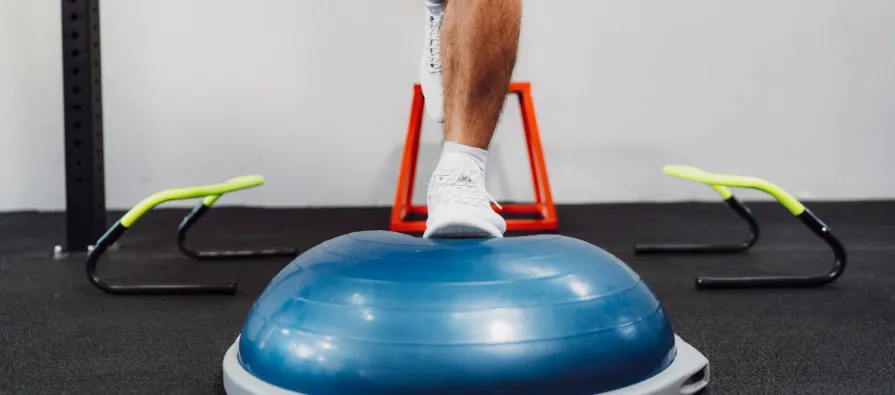Kaizen Health and Wellness
Balance and Gait Disorders in Urbandale
Exploring Balance and Gait Disorders
Balance and gait disorders are conditions that affect a person’s ability to stand and walk steadily. These disorders can make simple tasks like walking, climbing stairs, or getting up from a chair challenging. Balance and gait are essential for our everyday activities, and when they are impaired, it can lead to accidents and injuries.

Common Balance and Gait Disorders in Urbandale
Several prevalent balance and gait disorders affect people across the spectrum of age and health:
Vertigo
Vertigo involves the sensation of spinning or movement, even when a person is perfectly still. It can be triggered by inner ear complications or issues within the brain.
Dizziness
Dizziness can make an individual feel lightheaded or unsteady. It can stem from various factors, such as low blood pressure, dehydration, or ear-related problems.
Ataxia
Ataxia disrupts coordination and balance, often originating from damage to the cerebellum, a crucial part of the brain responsible for controlling movement.
Parkinson’s Disease
Parkinson’s disease is a progressive neurological disorder that leads to tremors, muscle stiffness, and difficulties in maintaining balance and coordination.
Peripheral Neuropathy
Peripheral neuropathy damages nerves in the extremities, causing numbness, weakness, and issues with balance.
Detecting Balance and Gait Disorders
Recognizing the signs and symptoms of balance and gait disorders is crucial for early intervention. Here are some common indicators to watch out for:
Dizziness or Unsteadiness: Experiencing a sensation of impending falls or loss of balance.
Difficulty Walking: Struggling to walk smoothly, often accompanied by a shuffling or unsteady gait.
Frequent Falls: An increased risk of falling, even during routine activities.
Vertigo or Spinning Sensation: Feeling as if you or your surroundings are in motion when they are not.
Numbness or Weakness: Sensing a lack of sensation or strength in your legs or feet.
Poor Coordination: Facing challenges with tasks requiring precise movements, like picking up small objects.
Understanding the Causes of Balance and Gait Disorders
Balance and gait disorders can have various underlying causes, including:
Inner Ear Problems: Issues within the inner ear, such as infections or disorders like Meniere’s disease, can significantly impact balance.
Neurological Conditions: Conditions like stroke, multiple sclerosis, and Parkinson’s disease can disrupt the brain’s control over balance and coordination.
Musculoskeletal Problems: Complications with muscles, joints, or bones can affect one’s balance.
Medications: Certain medications may induce side effects leading to dizziness or unsteadiness.
Age: As individuals age, their muscles and joints may weaken, increasing the likelihood of balance and gait issues.
Approaches to Treating Balance and Gait Disorders in Urbandale
The treatment of balance and gait disorders varies depending on their underlying causes. Here are some common approaches to managing these conditions:
Physical Therapy: Specific exercises and techniques offered through physical therapy can enhance strength, coordination, and balance.
Medications: In some cases, medications may be prescribed to manage symptoms or address the root causes of these disorders.
Assistive Devices: Canes, walkers, or braces can provide additional stability and support during walking.
Lifestyle Changes: Modifying daily routines, such as installing handrails at home, can help prevent falls.
Surgery: In severe cases or when structural issues are involved, surgical intervention may be necessary.
Preventing Balance and Gait Disorders
Taking proactive steps to minimize risk factors is essential for preventing balance and gait disorders:
Stay Active: Regular physical activity helps maintain muscle strength and coordination.
Check Medications: Discuss potential side effects with your doctor if you are taking medications.
Stay Hydrated: Proper hydration can prevent dizziness and lightheadedness.
Get Regular Check-ups: Routine visits to your healthcare provider can help identify and address issues early.
Safety at Home: Make your home safer by eliminating tripping hazards and adding handrails where needed.
Comprehending Balance and Gait Disorders
Balance and gait disorders affect individuals of all ages and can significantly impact their daily lives. Early recognition of signs and symptoms and appropriate medical care are crucial for effectively managing these disorders. With the proper treatment and preventive measures, individuals can enhance their balance and regain confidence in walking and performing daily activities.
If you or someone you know is grappling with balance or gait problems, consulting a healthcare professional for a thorough evaluation and personalized treatment plan is strongly recommended. Remember that maintaining balance and gait is essential for leading a healthy and active life!


